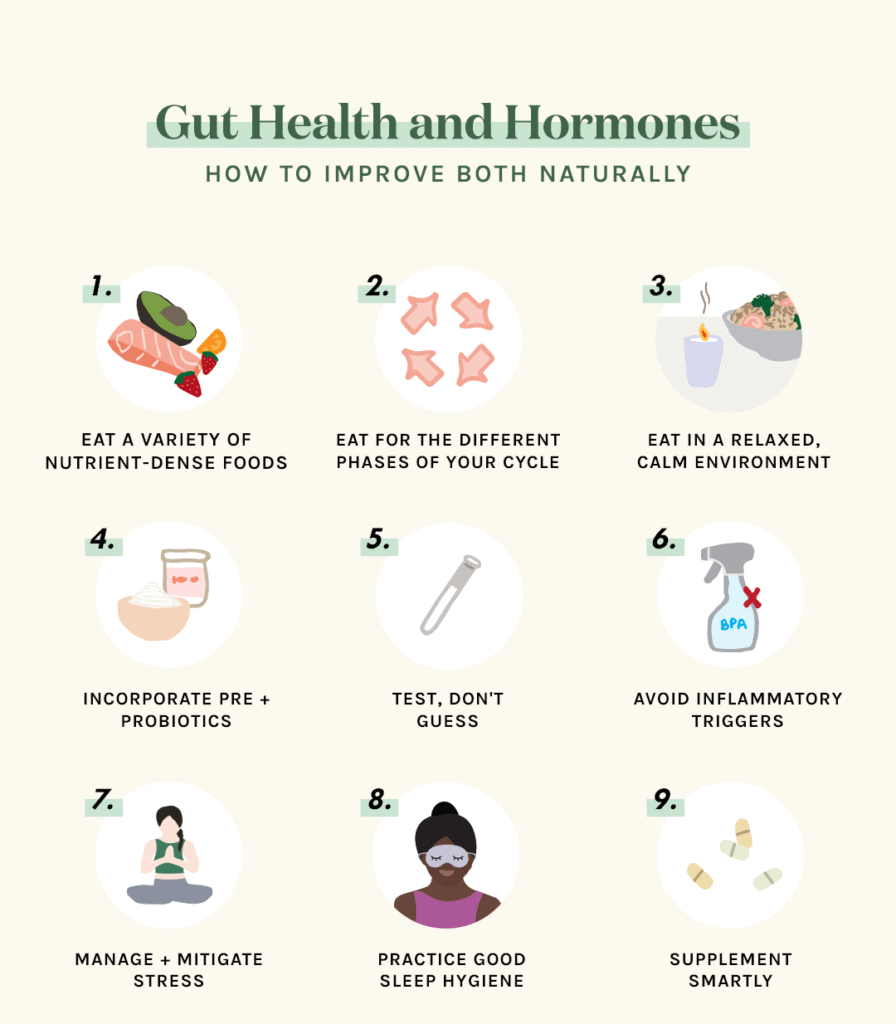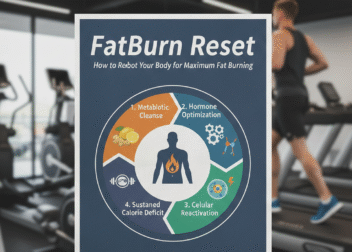Hormones are critical messengers in the body, controlling everything from our mood and metabolism to our sleep cycles and reproductive health. When they are balanced, we feel energetic, happy, and healthy. When they are not, everything can feel off — we may gain weight, struggle with depression, experience poor sleep, or have difficulty with digestion and fertility. Learning how to balance hormones naturally is one of the best investments we can make in our long-term health. In this detailed guide, we will explore the latest tips and tricks, backed by scientific insights, to help you naturally bring your hormones back into harmony.
Understanding Hormonal Imbalance
Hormones are secreted by glands in the endocrine system and travel through the bloodstream to tissues and organs. They affect various processes including growth, metabolism, sexual function, reproduction, and mood. Hormonal imbalance happens when there is too much or too little of a hormone in the body, leading to symptoms that can be mild or severe.

Some common symptoms of hormonal imbalance include:
- Unexplained weight gain or weight loss
- Chronic fatigue and low energy
- Increased sensitivity to cold or heat
- Constipation or diarrhea
- Dry skin
- Puffy face
- Depression and anxiety
- Irritability and mood swings
- Irregular menstrual cycles
- Low libido
- Hair thinning or hair loss
- Infertility
- Blurred vision
The causes of hormonal imbalance can be varied, including stress, poor diet, environmental toxins, lack of sleep, medical conditions like diabetes or thyroid disorders, and the natural aging process. Addressing the root cause through natural methods can significantly improve your quality of life.
Eat a Balanced, Nutrient-Dense Diet
Diet plays a crucial role in hormonal health. What we eat provides the building blocks our bodies need to produce and regulate hormones. Consuming a diet rich in whole, nutrient-dense foods can help maintain optimal hormonal balance.
Foods That Help Balance Hormones Naturally:
- Healthy fats: Fats are essential for hormone production. Incorporate sources like avocados, nuts, seeds, olive oil, coconut oil, and fatty fish into your diet. Omega-3 fatty acids from salmon, mackerel, and chia seeds are especially beneficial.
- Leafy greens: Vegetables like kale, spinach, and Swiss chard are rich in magnesium, a key mineral for hormone production. They also help detoxify the liver, which plays a role in hormone metabolism.
- Fiber-rich foods: A high-fiber diet can help regulate blood sugar levels and remove excess hormones from the body. Include beans, lentils, flaxseeds, oats, and vegetables.
- Cruciferous vegetables: Broccoli, cauliflower, Brussels sprouts, and cabbage contain compounds that support estrogen balance.
- Fermented foods: Good gut health is essential for hormone balance. Probiotic-rich foods like yogurt, kefir, kimchi, sauerkraut, and kombucha promote healthy digestion and nutrient absorption.
- Protein: Eating enough protein is critical for maintaining muscle mass, regulating appetite hormones, and supporting reproductive hormones. Focus on grass-fed meats, free-range poultry, wild-caught fish, legumes, and organic eggs.
Foods to Avoid: Processed foods, refined sugar, excessive caffeine, alcohol, and artificial sweeteners can wreak havoc on hormone levels. Eliminating or reducing these can make a significant difference.
Manage Stress to Control Cortisol Levels
Stress is one of the biggest contributors to hormonal imbalance. When we experience stress, our adrenal glands release cortisol, the primary stress hormone. While cortisol is important for survival, chronic stress keeps cortisol levels high, leading to imbalances in insulin, thyroid hormones, and sex hormones like estrogen and testosterone.
Natural Stress Management Techniques:
- Meditation and deep breathing: Even five to ten minutes a day of mindful breathing can lower cortisol levels and promote relaxation.
- Yoga and Tai Chi: Gentle, mindful movement practices help reduce stress hormones while improving overall body strength and flexibility.
- Journaling: Writing down thoughts and feelings helps to process emotions and reduce mental stress.
- Spending time in nature: A walk in the park, hiking, or sitting by the water can naturally reduce stress.
- Adequate rest: Schedule time for relaxation and leisure activities. Taking regular breaks during the workday is essential.
By managing stress effectively, we can significantly lower cortisol levels, support adrenal health, and bring overall hormonal balance back to the body.
Prioritize Quality Sleep for Hormonal Repair
Sleep is not just for rest — it is when our bodies repair, detoxify, and balance hormones. Lack of sleep or poor-quality sleep can disrupt the production of insulin, leptin, ghrelin, cortisol, and melatonin.

Tips for Better Sleep Hygiene:
- Maintain a consistent schedule: Go to bed and wake up at the same time every day, even on weekends.
- Create a relaxing bedtime routine: Reading a book, taking a warm bath, or listening to calming music can signal to the body that it’s time to sleep.
- Avoid blue light exposure: Blue light from screens inhibits melatonin production. Avoid screens at least an hour before bedtime.
- Optimize your sleep environment: Keep your room dark, cool, and quiet. Consider blackout curtains, white noise machines, or a weighted blanket.
- Limit stimulants: Avoid caffeine after early afternoon and limit alcohol, which can disturb sleep cycles.
Getting seven to nine hours of restorative sleep each night is essential for maintaining hormonal equilibrium.
Exercise Smartly and Regularly
Exercise is a powerful tool for balancing hormones. It improves insulin sensitivity, reduces cortisol, boosts serotonin, and increases the production of growth hormone and testosterone.
Best Types of Exercise for Hormonal Balance:
- Strength training: Building muscle mass helps regulate insulin and increases metabolism.
- High-intensity interval training (HIIT): Short bursts of intense exercise improve cardiovascular health and support fat loss.
- Yoga and Pilates: These practices reduce stress and cortisol levels while improving flexibility and strength.
- Low-impact activities: Walking, cycling, and swimming are excellent for reducing stress without overloading the adrenal system.
However, over-exercising can backfire by excessively raising cortisol levels. It’s important to listen to your body and allow adequate time for recovery.
Support Hormonal Health with Targeted Supplements
Sometimes, diet and lifestyle changes alone are not enough. Supplements can play a supportive role in restoring hormonal balance, especially if there are nutrient deficiencies.
Top Supplements for Hormonal Balance:
- Ashwagandha: An adaptogenic herb that helps regulate cortisol levels and supports thyroid function.
- Maca root: Enhances fertility, balances estrogen, and improves libido.
- Omega-3 fatty acids: Reduce inflammation and support insulin sensitivity.
- Magnesium: Vital for over 300 enzymatic reactions in the body, including hormone production and regulation.
- Vitamin D: Essential for immune function and hormonal balance, especially reproductive hormones.
- Probiotics: Support gut health, which is intimately connected to hormone production and regulation.
Always choose high-quality supplements and consult with a healthcare professional before starting a new regimen.
Improve Gut Health for Hormonal Harmony
The gut is often referred to as the “second brain” because of its massive influence over the rest of the body, including the hormonal system. A healthy gut ensures better digestion, better absorption of nutrients, and better detoxification — all critical for hormonal balance.

Steps to Support Gut Health:
- Eat a diverse range of foods: Diversity in the diet encourages a rich microbiome.
- Include fermented foods: Yogurt, kefir, miso, and kimchi are excellent choices.
- Limit sugar and processed foods: These can promote the growth of harmful bacteria.
- Stay hydrated: Water is crucial for digestion and elimination of toxins.
- Consider probiotics: A high-quality probiotic supplement can support gut health.
Balancing the gut microbiome has a positive cascading effect on almost every other system in the body, including hormonal health.
Detoxify Your Body Naturally
Our modern environments expose us to countless toxins that can disrupt hormonal health. These toxins, known as endocrine disruptors, can mimic or block natural hormones and interfere with the body’s normal functions.
Simple Ways to Detox:
- Drink filtered water: Avoid plastics and invest in a high-quality water filter.
- Eat organic produce: Reduce exposure to pesticides and herbicides.
- Support liver health: Cruciferous vegetables, garlic, and onions boost the liver’s ability to detoxify hormones.
- Use non-toxic personal care products: Choose shampoos, lotions, and cosmetics free of parabens, phthalates, and synthetic fragrances.
- Sweat regularly: Whether through exercise or saunas, sweating helps eliminate toxins from the body.
Reducing the toxic load on your body makes it easier for your hormonal system to maintain balance.
Minimize Exposure to Endocrine Disruptors
Environmental toxins are unavoidable, but there are ways to minimize exposure and protect our hormonal health.
Key Strategies:
- Avoid plastics: Use glass, stainless steel, or BPA-free containers.
- Be cautious with receipts: Thermal paper used for receipts is coated with BPA.
- Choose natural cleaning products: Vinegar, baking soda, and essential oils are effective alternatives.
- Opt for natural cosmetics: Look for brands that avoid synthetic chemicals.
Every small step taken to reduce exposure adds up, creating a healthier internal environment for hormone function.
Consider Professional Hormone Testing
Sometimes symptoms persist despite making lifestyle changes. In such cases, working with a functional medicine practitioner or naturopathic doctor can be extremely beneficial.
Testing methods include:
- Saliva testing: Good for measuring cortisol levels throughout the day.
- Blood testing: Common for thyroid hormones, insulin, and reproductive hormones.
- DUTCH test (Dried Urine Test for Comprehensive Hormones): Provides a complete picture of hormonal health.
With professional guidance, it becomes easier to tailor a precise plan that meets your body’s unique needs.
Conclusion
Balancing hormones naturally is a lifelong commitment to healthy living. By eating a nutrient-rich diet, managing stress, exercising wisely, sleeping well, supporting gut health, detoxifying, and considering professional help when necessary, we can create a strong foundation for lasting hormonal health.
These lifestyle changes may seem overwhelming at first, but even small shifts can make a huge difference over time. Empower yourself with knowledge, listen to your body, and make choices every day that support your best self. Your hormones — and your overall well-being — will thank you for it.

